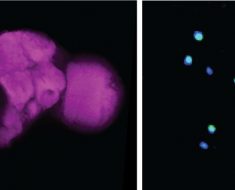Scientists from the University of Birmingham have shown an existing drug may reduce damage after spinal cord injury, by blocking the inflammatory response in the spinal cord.
Their research, published today in Clinical and Translational Medicine, demonstrates that AZD1236, a drug developed by AstraZeneca, can significantly reduce ‘secondary damage’ caused by the body’s response to spinal cord injury (SCI).
Researchers led by Professor Zubair Ahmed, Professor of Neuroscience and lead for the Neuroscience and Ophthalmology Section at The University’s Institute of Inflammation and Ageing, used animal models to demonstrate that AZD1236 can promote significant nerve regeneration, with a dramatic 80% preservation in nerve function following spinal cord compression injury.
Crucially, this translated into an 85% improvement in movement and sensation. These dramatic effects were observed following only three days of treatment with AZD1236, starting within 24 hours post-injury. Within three weeks, the AZD1236 treated animals showed unprecedented recovery, while controls still showed significant deficits at six weeks post-injury.
One of the key drivers of SCI secondary damage is breakdown of the blood-spinal cord barrier (BSCB). This results in oedema (excess fluid build-up around the spinal cord) and triggers an inflammatory response that can ultimately hinder the healing process, and lead to nerve cell death.
AZD1236 is a potent and selective inhibitor of two enzymes, MMP-9 and MMP-12, which are implicated in the inflammatory process.
Source: Read Full Article





